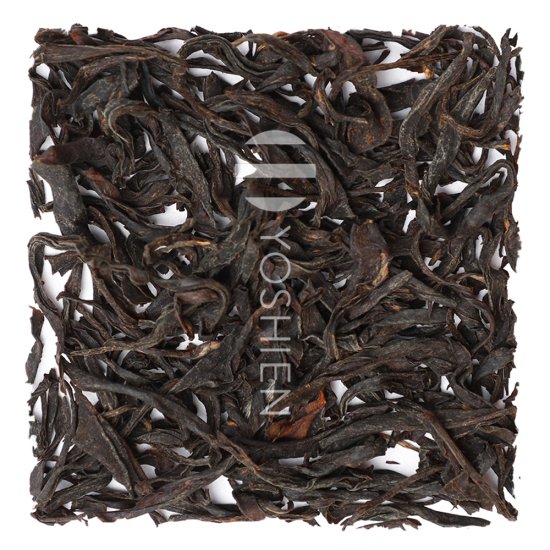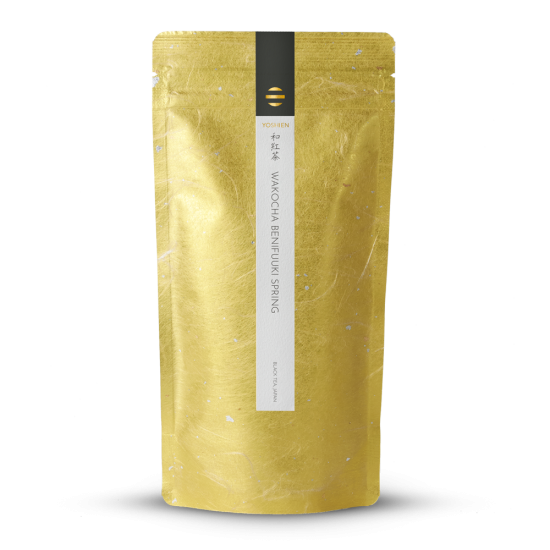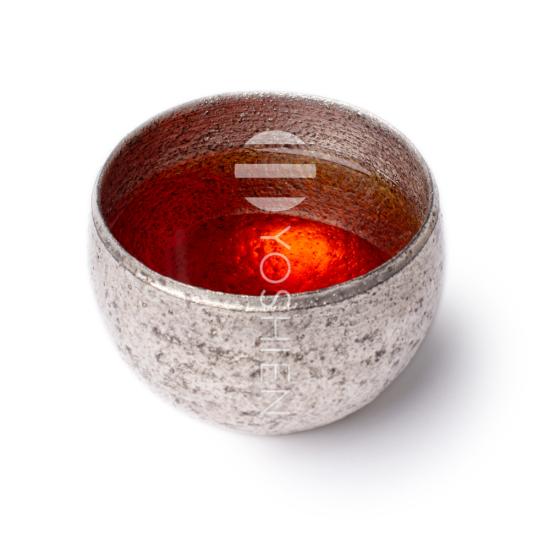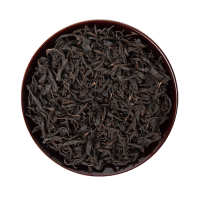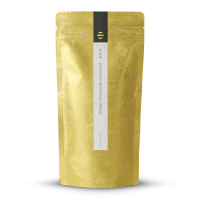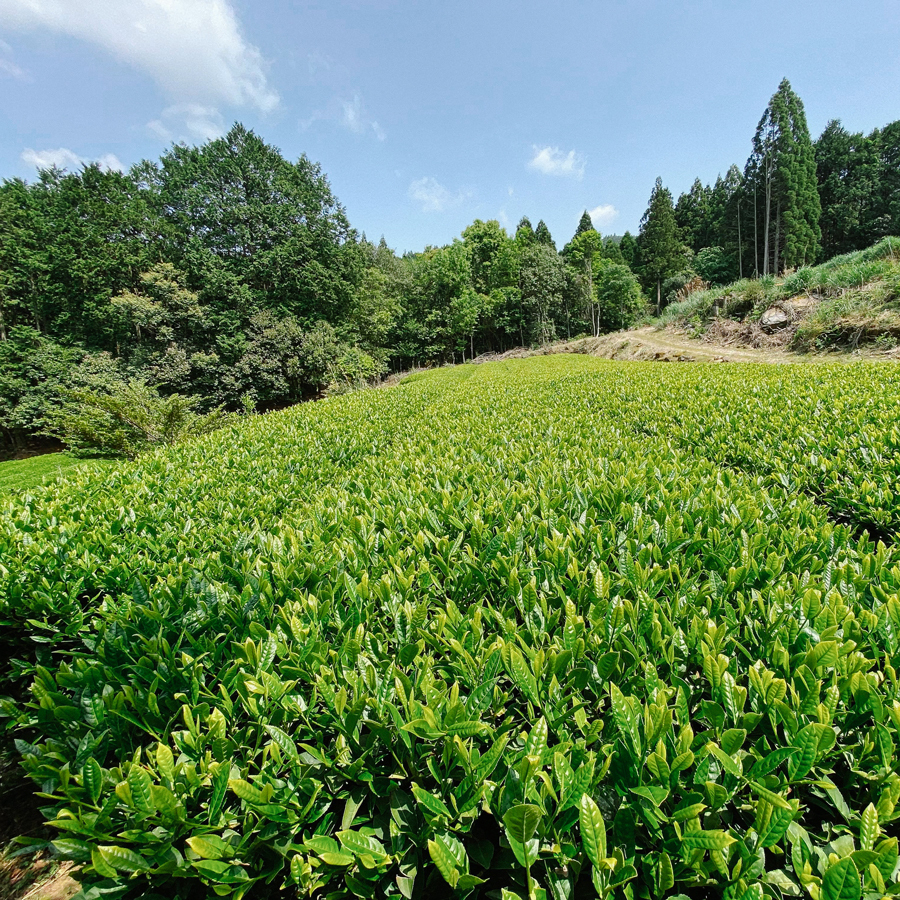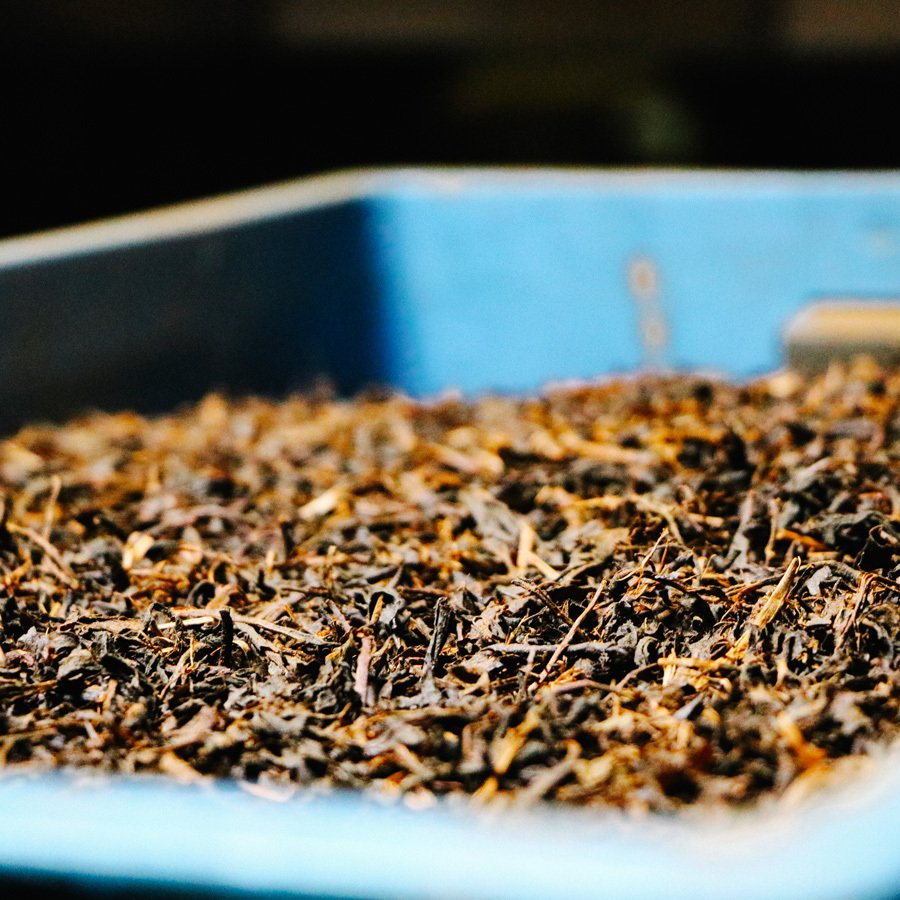Despite its inland location, the tea farm is only a few kilometres away from Yatsushiro Sea. The semi-enclosed sea, teaming with fish, also provides the region with a very dense fog, which acts as natural shade from the sun and contributes to the suppleness of the tea leaves and their soft taste. The surrounding mountain forests of South Kumamoto are criss-crossed with rivers, romantic waterfalls and natural rock caves, which provide the fresh water that is so important for tea cultivation. Due to the mountainous location of the plantations, only small, hand-operated machines can be used for harvesting — especially since the tea fields are of a much smaller size than usual for conventional farms in the lowlands. Producing this tea requires the farmer to continuously monitor the harvested leaves, keeping a close eye on factors such as humidity, temperature and weather during the wilting, oxidation and drying procedures. Through his passion and years of experience in tea cultivation, he has succeeded in gradually rising to fame, winning awards at both regional and national competitions. His wakocha teas have achieved international praise and are highly appreciated by connoisseurs abroad. While his teas stand out for their great taste, his cultivation methods stand out, too, as he does not use any plant protection products; only organic fertilisers.
A special feature of this tea is the long leaf needles resulting from the farmer's special processing, which follows the traditional techniques he learned during his advanced training in Taiwan. While tea leaves are normally cut, these leaves are left intact, resulting in long, elegant needles. The Benifuuki cultivar was only registered in Japan in 1993, making it relatively young. A cross between Assamica and Sinensis, this cultivar is used both for green tea, known for its methylated catechins, and for oxidised teas, whereby the black tea is characterised by a mildness and sweetness peculiar to wakocha.
Single Origin
This tea is sourced exclusively from the above mentioned tea farm in Ashikita.





